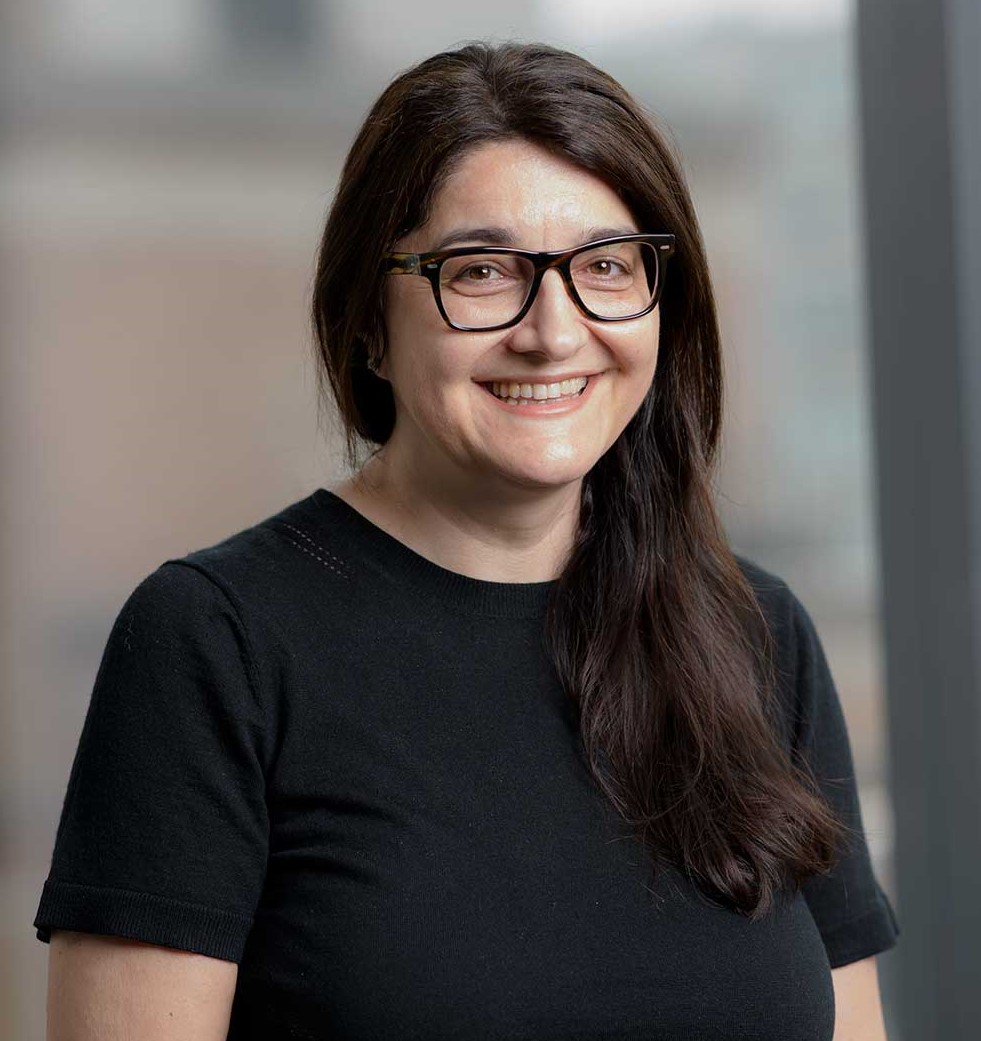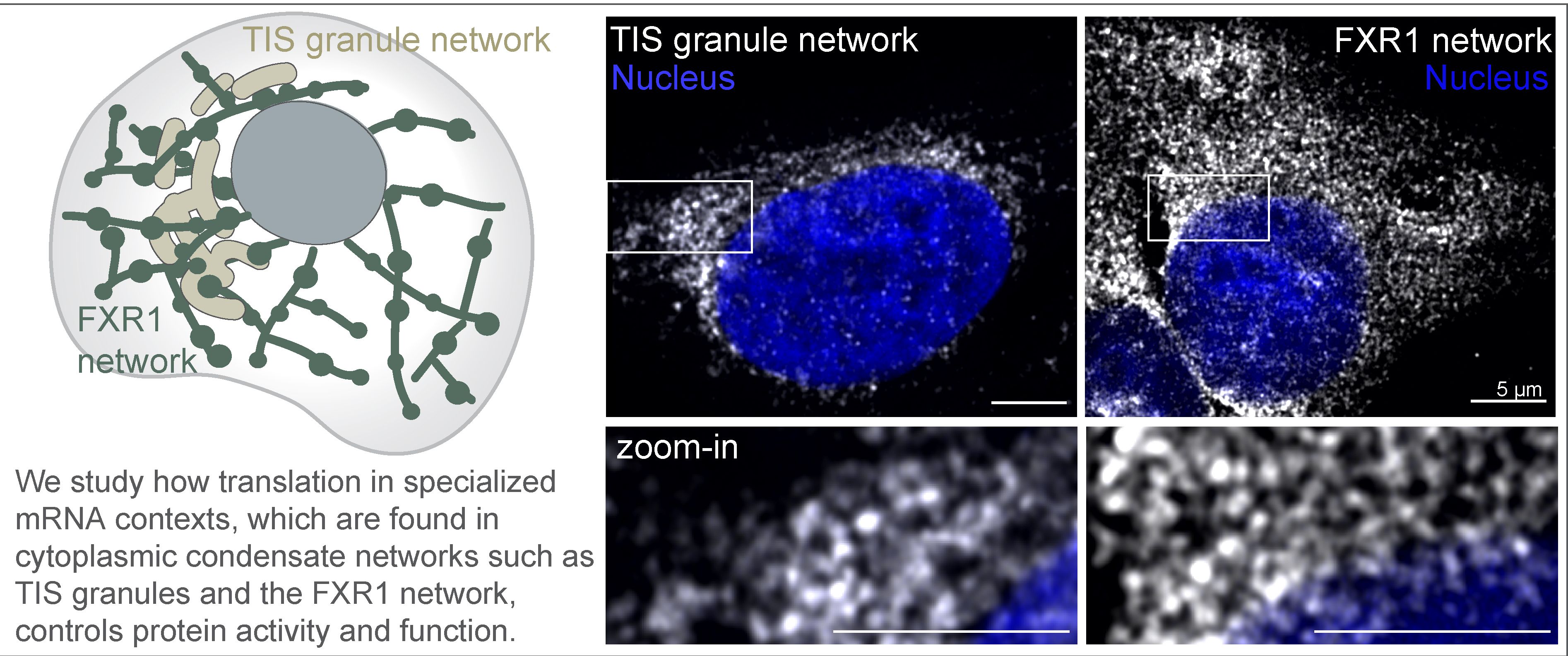
Research
The Mayr Lab discovered that at least 20% of cytoplasmic mRNAs are organized into membraneless organelles, called TIS granules and the FXR1 network. Within these ‘cytoplasmic condensate networks’, mRNAs seem to be better accessible and have different shapes than mRNAs located outside of these compartments. We further found that protein synthesis within these special mRNA environments changes the functions of transcription factors and the activity of enzymes. This means that unique mRNA contexts present during protein synthesis control protein function.
Figure 1

In the past, we investigated how the location of protein synthesis in the cytoplasm is controlled. We found that mRNA architecture features such as mRNA and exon length together with 3′UTR-bound RNA-binding proteins are major regulators of the location of protein synthesis. We further found that the location of protein synthesis in the cytoplasm is important as it regulates how much of a transcription factor is produced and with whom the transcription factor interacts.
As transcription factors are the master regulators of development, we currently investigate how the location of protein synthesis changes transcription factor function during embryonic stem cell differentiation. We also study how the mRNA environment at the site of protein synthesis controls protein function through the regulation of protein conformation and complex assembly. Moreover, we examine the assembly rules of TIS granules and the FXR1 network to better understand how mRNAs are organized in the cytoplasm.
Current Projects:
- mRNA organization in the cytoplasm
- Control of transcription factor conformations by mRNA
- Control of enzymatic activity by mRNA
- Assembly rules of cytoplasmic condensate networks
- TIS granule functions during stem cell differentiation
- FXR1 network functions
- Roles of 3′UTRs of transcription factor-encoding mRNAs
- Regulation of alternative 3′UTRs
- Regulation of location of protein synthesis
Bio
Dr. Mayr received her M.D. from Free University in Berlin and her Ph.D. in Immunology from Humboldt University in Berlin, Germany. For her postdoc, she joined David Bartel’s lab at the Whitehead Institute/MIT. In 2009, she started her own laboratory in the Cancer Biology and Genetics Program of MSKCC. Her work on 3′UTRs was selected as one of the breakthroughs of 2013 by Science Signaling and she was awarded the NIH Director’s Pioneer Award in 2016. She is a full member of Sloan Kettering Institute and a Full Professor at the GSK and WCMC graduate schools.
Distinctions:
- Science Signaling Breakthrough (2013)
- Damon Runyon-Rachleff Innovation Award (2013)
- Cell Scientist to watch (2015)
- Pershing Square Sohn Prize for Young Investigators in Cancer Research (2015)
- NIH Director′s Pioneer Award (2016)
- Louise and Allston Boyer Young Investigator Award for Basic Research (2019)
- Member of the Editorial Board of Cell (2020)
